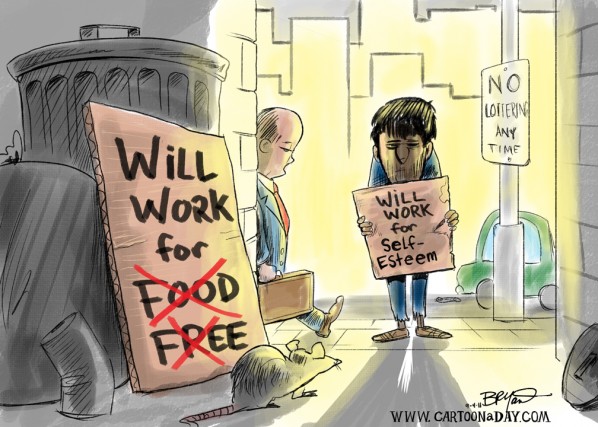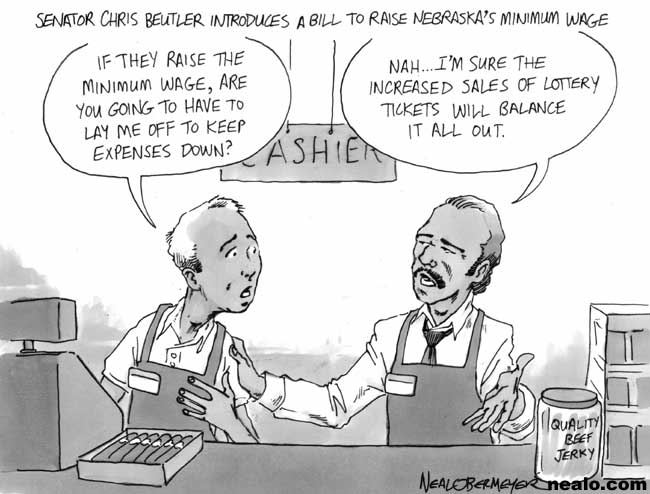[fblike]
 Since November 2003, when the Massachusetts Supreme Judicial Court ruled in Goodridge v. Department of Public Health that gay couples in Massachusetts had a right to marry, gay marriage has been a hot political topic. Some could also argue that the passage of the Defense of Marriage Act (DOMA) in 1996 made gay marriage a political issue, but the 2003 Massachusetts ruling in conjunction with San Francisco Mayor Gavin Newsom ordering his city to issue marriage licenses to gay couples in 2004 made the gay marriage debate a more prominent national issue. President George W. Bush was able to use state-level constitutional amendments that prohibited gay marriage to provide momentum to his re-election campaign in 2004 and push for a national constitutional amendment to ban the practice. Since 2004 the proponents of gay marriage have experienced significant judicial victories, with the Supreme Court invalidating an element of DOMA last year and four states legalizing gay marriage after the decision: New Jersey, Hawaii, Illinois, and New Mexico. Currently, seventeen states, along with the District of Columbia, recognize gay marriage and lawsuits are pending in federal courts to invalidate state constitutional amendments that prohibit gay marriage. Due to the growing number of lawsuits on the state level against gay marriage prohibitions, it only seems like a matter of time before the Supreme Court will have to weigh in about gay marriage again and extempers could confront questions about the constitutionality of gay marriage in the near future.
Since November 2003, when the Massachusetts Supreme Judicial Court ruled in Goodridge v. Department of Public Health that gay couples in Massachusetts had a right to marry, gay marriage has been a hot political topic. Some could also argue that the passage of the Defense of Marriage Act (DOMA) in 1996 made gay marriage a political issue, but the 2003 Massachusetts ruling in conjunction with San Francisco Mayor Gavin Newsom ordering his city to issue marriage licenses to gay couples in 2004 made the gay marriage debate a more prominent national issue. President George W. Bush was able to use state-level constitutional amendments that prohibited gay marriage to provide momentum to his re-election campaign in 2004 and push for a national constitutional amendment to ban the practice. Since 2004 the proponents of gay marriage have experienced significant judicial victories, with the Supreme Court invalidating an element of DOMA last year and four states legalizing gay marriage after the decision: New Jersey, Hawaii, Illinois, and New Mexico. Currently, seventeen states, along with the District of Columbia, recognize gay marriage and lawsuits are pending in federal courts to invalidate state constitutional amendments that prohibit gay marriage. Due to the growing number of lawsuits on the state level against gay marriage prohibitions, it only seems like a matter of time before the Supreme Court will have to weigh in about gay marriage again and extempers could confront questions about the constitutionality of gay marriage in the near future.
This topic brief will provide a brief history about the gay marriage debate, break down judicial decisions that are pending concerning the issue, and then provide a brief analysis of how gay rights could impact American foreign policy.
Readers are also encouraged to use the links below and in the related R&D to bolster their files about this topic.





 The first Friday of every month sees the Bureau of Labor Statistics (BLS) reveal the previous month’s unemployment rate. Since the Great Recession of 2008 the BLS’s monthly announcements have been anticipated by political actors who wish to use the unemployment numbers to advance their agendas. The media also provides a lot of coverage of the recent unemployment data and use it to measure the health of the economy and the pace of America’s economic recovery. Last week the unemployment rate for December was announced as 6.7%, which is the lowest unemployment rate since October 2008. The initial reaction was to treat this as good news since the unemployment rate has fallen since 2010, when it reached a height of 9.9%. However, economists expressed worry that the unemployment rate is not reflecting actual events in the economy because the economy only added 74,000 jobs in December and the reason the unemployment rate is going down is because fewer Americans are looking for work.
The first Friday of every month sees the Bureau of Labor Statistics (BLS) reveal the previous month’s unemployment rate. Since the Great Recession of 2008 the BLS’s monthly announcements have been anticipated by political actors who wish to use the unemployment numbers to advance their agendas. The media also provides a lot of coverage of the recent unemployment data and use it to measure the health of the economy and the pace of America’s economic recovery. Last week the unemployment rate for December was announced as 6.7%, which is the lowest unemployment rate since October 2008. The initial reaction was to treat this as good news since the unemployment rate has fallen since 2010, when it reached a height of 9.9%. However, economists expressed worry that the unemployment rate is not reflecting actual events in the economy because the economy only added 74,000 jobs in December and the reason the unemployment rate is going down is because fewer Americans are looking for work. Since 2009, the federal minimum wage has been $7.25. The last time that Congress voted for a minimum wage increase was 2007, which occurred in the aftermath of the Democrats winning control of both houses of Congress for the first time since 1995. During last year’s State of the Union, President Barack Obama called for increasing the federal minimum wage and reiterated his support for this on December 5th. President Obama has supported a phased-in minimum wage hike to $10.10, which would go into effect in 2015. Congressional Democrats have supported the President’s plan and argue that a new minimum wage hike should also be indexed to inflation to ensure that minimum wage gains are not eventually diluted by depreciation. With twenty-one states having higher minimum wage levels than the federal government and recurring strikes taking place in the fast food industry, a topic that Extemp Central broke down a few months ago, the debate on a new minimum wage hike could impact the 2014 midterm elections by putting economic inequality back into the national spotlight.
Since 2009, the federal minimum wage has been $7.25. The last time that Congress voted for a minimum wage increase was 2007, which occurred in the aftermath of the Democrats winning control of both houses of Congress for the first time since 1995. During last year’s State of the Union, President Barack Obama called for increasing the federal minimum wage and reiterated his support for this on December 5th. President Obama has supported a phased-in minimum wage hike to $10.10, which would go into effect in 2015. Congressional Democrats have supported the President’s plan and argue that a new minimum wage hike should also be indexed to inflation to ensure that minimum wage gains are not eventually diluted by depreciation. With twenty-one states having higher minimum wage levels than the federal government and recurring strikes taking place in the fast food industry, a topic that Extemp Central broke down a few months ago, the debate on a new minimum wage hike could impact the 2014 midterm elections by putting economic inequality back into the national spotlight. The United States invaded Afghanistan on October 7, 2001 to topple the country’s Taliban-led government, capture Osama bin Laden, and destroy al-Qaeda. The war has been America’s longest conflict and more than 2,000 American troops have been killed and more than 19,000 have been wounded. Since the Iraq invasion of 2003, Afghanistan has played second fiddle to the global war on terrorism and the war has largely been ignored by the national media since President Obama assumed office in 2009. Although President Obama committed more American forces to Afghanistan, which emulated the “surge” strategy used in Iraq in 2007, America’s presence in the country is beginning to wind down. 2014 marks the end of the North Atlantic Treaty Organization’s (NATO) combat mission and the United States is trying to negotiate a bilateral security agreement (BSA) with Afghan President Hamid Karzai that would allow American forces to remain in the country to train Afghan soldiers and continue counterterrorism operations. However, while Afghan elders have approved of the BSA, President Karzai has said that he will not sign the agreement until after Afghanistan holds presidential elections in April. He has also issued new conditions that the United States must agree to in order to get him to sign the BSA. The United States argues that Karzai cannot wait that long to sign the agreement and that if he fails to do so soon they will withdraw all combat forces from the country by the end of the 2014.
The United States invaded Afghanistan on October 7, 2001 to topple the country’s Taliban-led government, capture Osama bin Laden, and destroy al-Qaeda. The war has been America’s longest conflict and more than 2,000 American troops have been killed and more than 19,000 have been wounded. Since the Iraq invasion of 2003, Afghanistan has played second fiddle to the global war on terrorism and the war has largely been ignored by the national media since President Obama assumed office in 2009. Although President Obama committed more American forces to Afghanistan, which emulated the “surge” strategy used in Iraq in 2007, America’s presence in the country is beginning to wind down. 2014 marks the end of the North Atlantic Treaty Organization’s (NATO) combat mission and the United States is trying to negotiate a bilateral security agreement (BSA) with Afghan President Hamid Karzai that would allow American forces to remain in the country to train Afghan soldiers and continue counterterrorism operations. However, while Afghan elders have approved of the BSA, President Karzai has said that he will not sign the agreement until after Afghanistan holds presidential elections in April. He has also issued new conditions that the United States must agree to in order to get him to sign the BSA. The United States argues that Karzai cannot wait that long to sign the agreement and that if he fails to do so soon they will withdraw all combat forces from the country by the end of the 2014.